Renault Mégane vs Renault Symbioz – Differences & prices compared
Compare performance, boot space, consumption and price in one view.
Find out now: which car is the better choice for you – Renault Mégane or Renault Symbioz?
The Renault Mégane (SUV) comes with a Electric engine and Automatic transmission. In comparison, the Renault Symbioz (SUV) features a Petrol MHEV or Full Hybrid engine with Manuel or Automatic transmission.
When it comes to boot capacity, the Renault Mégane offers 389 L, while the Renault Symbioz provides 576 L – depending on how much space you need. If you’re looking for more power, decide whether the 218 HP of the Renault Mégane or the 158 HP of the Renault Symbioz suits your needs better.
In terms of consumption, the values are 15.40 kWh per 100 km for the Renault Mégane, and 4.50 L for the Renault Symbioz.
Price-wise, the Renault Mégane starts at 35100 £, while the Renault Symbioz is available from 24400 £. Compare all the details and find out which model fits your lifestyle best!
In a head-to-head comparison of the Renault Mégane and the Renault Symbioz, enthusiasts will find compelling features in both models. The Mégane offers a blend of practicality and sporty performance, making it a favorite for everyday driving. In contrast, the Symbioz pushes the boundaries of innovation with its advanced autonomous technology and sustainable electric design, highlighting Renault's vision for the future of mobility.
Renault Mégane
The Renault Mégane stands out in the hatchback segment with its chic design and advanced technology features. Its interior offers a spacious and comfortable environment, providing both driver and passengers with a premium experience. Combining impressive handling with economical efficiency, the Mégane caters to those seeking style and practicality in their daily commute.
details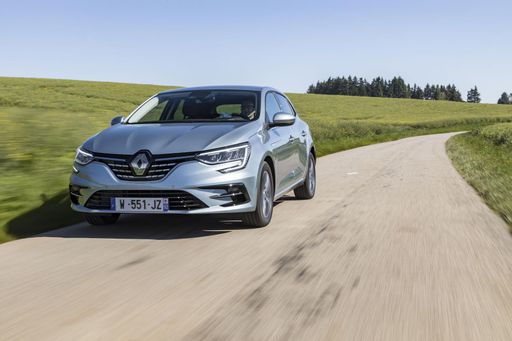 @ Renault
@ Renault
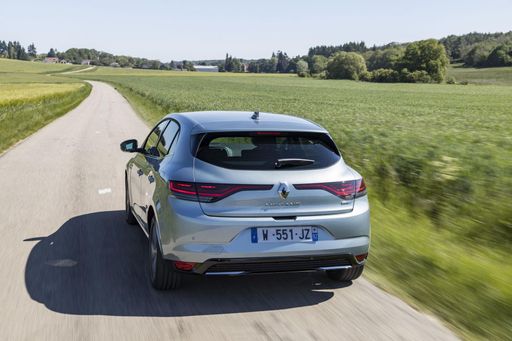 @ Renault
@ Renault
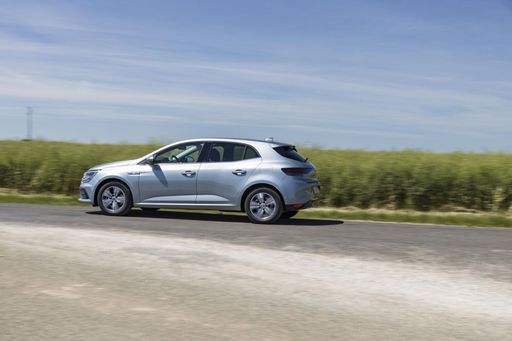 @ Renault
@ Renault
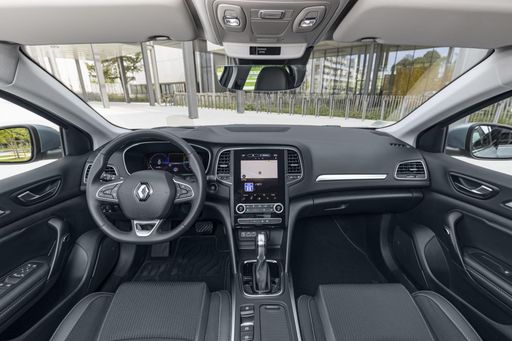 @ Renault
@ Renault
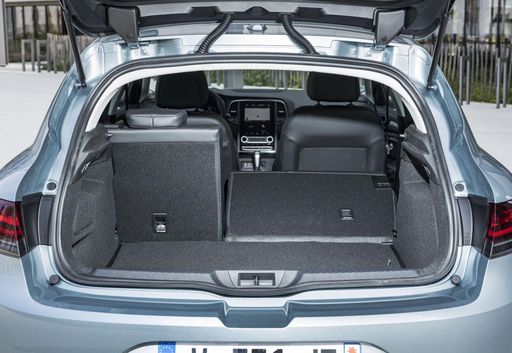 @ Renault
@ Renault
Renault Symbioz
The Renault Symbioz is an innovative concept car that explores the future of autonomous and connected driving. Its design seamlessly integrates indoor living space features with cutting-edge automotive technology, creating a comfortable and modern environment. The Symbioz highlights Renault's vision of an eco-friendly and connected mobility experience, paving the way for the next generation of smart vehicles.
details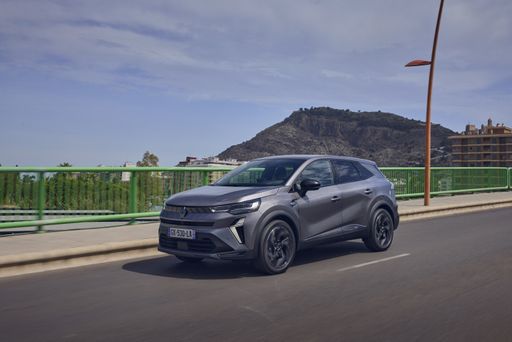 @ media.renault.at
@ media.renault.at
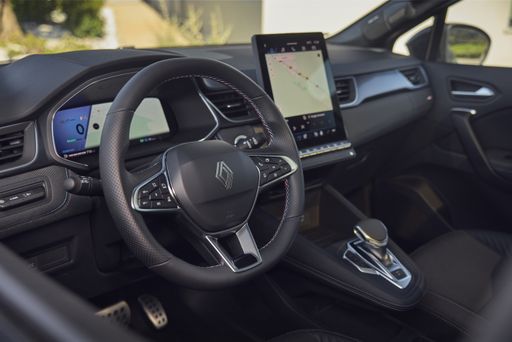 @ media.renault.at
@ media.renault.at
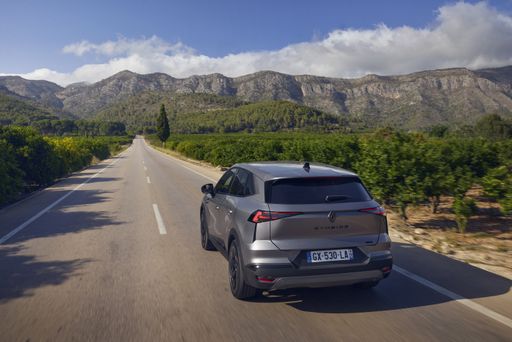 @ media.renault.at
@ media.renault.at
As the automotive industry continues to evolve towards electrification and innovative technologies, Renault stands out with two noteworthy models: the Renault Mégane and the Renault Symbioz. Both vehicles showcase the brand’s commitment to sustainability and performance, yet they target different segments of the market. This comparison delves into the technical specifications and innovative features of these two vehicles, offering insights for prospective buyers and enthusiasts alike.
Powertrain and Performance
The Renault Mégane stands as a prominent example of electric vehicles, boasting multiple power options with outputs that range from 130 to 218 HP. Its electric powertrain ensures a smooth and quiet driving experience, complemented by a reduction gearbox for efficient power delivery. The Mégane offers impressive torque figures of up to 300 Nm, enabling swift acceleration from 0 to 100 km/h in as little as 7.4 seconds on its sport version.
In contrast, the Renault Symbioz features a full hybrid engine that provides a combined power output of 143 HP, drawing from a 1.6L engine coupled with hybrid technology. With a more traditional internal combustion engine approach, the Symbioz still adheres to modern efficiency standards with a fuel consumption of just 4.8 L/100 km. Its torque of 250 Nm also allows for respectable performance, though slightly behind the Mégane in acceleration, achieving 0-100 km/h in 10.6 seconds.
Electric Range and Efficiency
Electric vehicles thrive on efficiency, and the Renault Mégane excels in this arena, offering an electric range that spans from 308 km to an impressive 460 km on a single charge. This means longer journeys without the worry of frequent recharging, a crucial factor for those considering a switch to electric. With an energy consumption of 14.9 to 15.4 kWh/100 km, the Mégane ranks high in terms of sustainability, boasting a CO2 efficiency class of A.
On the other hand, the Renault Symbioz’s hybrid configuration provides a different kind of efficiency. While it cannot match the Mégane's electric range, the hybrid’s fuel tank capacity of 48 liters opens up extended travel without dependency on charging stations. However, its CO2 emissions standing at 109 g/km places it in a less favorable efficiency class (C) compared to the Mégane.
Size and Practicality
When comparing dimensions, the Renault Symbioz is slightly larger than the Mégane. With a length of 4413 mm and a width of 1797 mm, the Symbioz offers a spacious interior, particularly when it comes to boot capacity, boasting 492 liters compared to the Mégane’s 389 liters. This added space may be advantageous for families or those requiring more cargo room.
However, the Mégane’s compact size of 4200 mm in length and 1768 mm in width provides an agile alternative suitable for urban environments. Both models accommodate up to five passengers, ensuring comfort and practicality in daily use.
Technology and Innovations
Renault is known for incorporating cutting-edge technology into its vehicles, and both the Mégane and Symbioz are no exceptions. The Mégane features a state-of-the-art infotainment system, enhanced connectivity options, and driver assistance technologies designed to enhance overall safety and driving pleasure.
Conversely, the Renault Symbioz is celebrated for its hybrid technology, representing a blend of traditional and electric vehicle traits. It also emphasizes innovative driving features, including advanced emissions control and smart energy management systems. While both vehicles are outfitted with essential tech, the Symbioz leans towards hybrid-specific innovations that promote fuel efficiency and reduced environmental impact.
Conclusion
In summary, choosing between the Renault Mégane and the Renault Symbioz ultimately comes down to individual needs and preferences. The Mégane, with its fully electric powertrain, delivers exceptional electric range, rapid acceleration, and zero emissions, making it a fantastic choice for eco-conscious drivers. On the other hand, the Symbioz offers the convenience of a hybrid system, catering to those who may be transitioning from traditional fuel vehicles while still benefitting from modern connectivity and ample space.
Whether you’re seeking sustainable options for daily commutes or family-friendly practicality, both vehicles reflect Renault's forward-thinking approach to the future of mobility.

|

|
|
|
|
Costs and Consumption |
|
|---|---|
|
Price
35100 - 38500 £
|
Price
24400 - 30700 £
|
|
Consumption L/100km
-
|
Consumption L/100km
4.5 - 5.9 L
|
|
Consumption kWh/100km
15.40 kWh
|
Consumption kWh/100km
-
|
|
Electric Range
452 km
|
Electric Range
-
|
|
Battery Capacity
-
|
Battery Capacity
-
|
|
co2
0 g/km
|
co2
102 - 134 g/km
|
|
Fuel tank capacity
-
|
Fuel tank capacity
48 L
|
Dimensions and Body |
|
|---|---|
|
Body Type
SUV
|
Body Type
SUV
|
|
Seats
5
|
Seats
5
|
|
Doors
5
|
Doors
5
|
|
Curb weight
1719 kg
|
Curb weight
1436 - 1544 kg
|
|
Trunk capacity
389 L
|
Trunk capacity
492 - 576 L
|
|
Length
4200 mm
|
Length
4413 mm
|
|
Width
1783 mm
|
Width
1797 mm
|
|
Height
1505 mm
|
Height
1575 mm
|
|
Payload
446 kg
|
Payload
376 - 379 kg
|
Engine and Performance |
|
|---|---|
|
Engine Type
Electric
|
Engine Type
Petrol MHEV, Full Hybrid
|
|
Transmission
Automatic
|
Transmission
Manuel, Automatic
|
|
Transmission Detail
-
|
Transmission Detail
Manual Gearbox, Automatic Gearbox
|
|
Drive Type
Front-Wheel Drive
|
Drive Type
Front-Wheel Drive
|
|
Power HP
218 HP
|
Power HP
140 - 158 HP
|
|
Acceleration 0-100km/h
7.40 s
|
Acceleration 0-100km/h
9.1 - 11.2 s
|
|
Max Speed
160 km/h
|
Max Speed
180 km/h
|
|
Torque
300 Nm
|
Torque
250 - 265 Nm
|
|
Number of Cylinders
-
|
Number of Cylinders
4
|
|
Power kW
160 kW
|
Power kW
103 - 116 kW
|
|
Engine capacity
-
|
Engine capacity
1333 - 1789 cm3
|
General |
|
|---|---|
|
Model Year
2025
|
Model Year
2025
|
|
CO2 Efficiency Class
A
|
CO2 Efficiency Class
D, C
|
|
Brand
Renault
|
Brand
Renault
|
Renault Mégane
Breaking New Ground: The Latest Renault Mégane Models
The Renault Mégane has long been a staple in the line-up of urban-centric and energy-efficient vehicles. As the world leans more towards sustainable driving, the latest models of the Renault Mégane continue to push the envelope with its innovative features and technical prowess.
Innovative Powertrain: The Heart of Mégane
The latest Mégane series comes equipped with an electric motor, offering a performance range of 130 to 218 PS (96 to 160 kW). This ensures that drivers not only benefit from emission-free motoring but also from robust performance figures, with a torque ranging between 250 to 300 Nm. The models are designed to provide a seamless driving experience with their automated front-wheel-drive system.
Efficiency Meets Performance
These Mégane models boast electric consumption figures from 14.9 to 15.4 kWh/100 km, impressive for their class, and are capable of achieving a range between 308 to 460 km on a single charge. The acceleration from 0-100 km/h varies between a peppy 7.4 seconds to a more leisurely 10.5 seconds, depending on the variant, all while maintaining a top speed of 150-160 km/h.
Modern Appeal with Practical Design
Renault’s attention to design is evident in the Mégane's contemporary aesthetic. Whether you opt for the Equilibre, Evolution, Iconic, or Techno trim, each is packed with thoughtful features ensuring comfort for its five passengers and a reasonable boot capacity of 389 litres. The sleek SUV silhouette runs 4,200 mm in length and 1,768 mm in width, giving it a commanding road presence without compromising on practicality.
Cost Efficiency with Zero Emissions
With prices ranging from €35,600 to €45,900, the Renault Mégane offers a competitive edge in its segment. Additionally, the monthly operating costs sit comfortably between €914 and €1,092. The absence of emissions—at 0 g/km—further places these models in the coveted CO2 efficiency class of A, making them a thoughtful choice for environmentally conscious urban drivers.
Conclusion
The Renault Mégane models stand as a testament to the brand's commitment to innovation, efficiency, and style. With its competitive range, pricing, and features, it efficiently caters to the modern driver's needs, balancing power, efficiency, and sustainability seamlessly.
Renault Symbioz
Discover the Future: The Renault Symbioz
As we transition into a new era of automotive technology, the Renault Symbioz stands as a beacon of innovation and sustainability. Designed with the modern driver in mind, this SUV redefines what it means to integrate elegant design with cutting-edge technology. Delve into the details of this impressive vehicle and see what sets it apart from the competition.
Unveiling Its Power: Hybrid Engine and Performance
At the heart of the Renault Symbioz is a full hybrid powertrain that combines efficiency with performance. The 143 PS engine, delivering 105 kW, ensures a smooth and responsive driving experience. Coupled with a front-wheel-drive automatic transmission, the Symbioz offers remarkable fuel economy at just 4.8 L/100 km, making it a top contender in the eco-friendly vehicle market.
Innovation Meets Design: Aesthetics and Aerodynamics
With dimensions measuring 4413 mm in length, 1797 mm in width, and 1575 mm in height, the Symbioz presents a striking and sleek profile. The vehicle marries form and function perfectly, enhancing aerodynamics while maintaining a comfortable and spacious interior. Its lightweight build, with a gross weight of 1498 kg, complements its agile handling and stability on the road.
Interior Elegance and Technology
The Renault Symbioz is not only about performance but also about offering a refined driving experience. The interior is meticulously designed to provide comfort for up to five occupants, boasting a generous boot space of 492 litres. High-quality materials and advanced infotainment systems enhance the driving experience, incorporating state-of-the-art technology seamlessly.
Bridging Sustainability and Performance
With CO2 emissions of 109 g/km and a CO2 efficiency class of C, the Renault Symbioz aims to reduce environmental impact without compromising on performance. Its 1.6-litre engine, composed of three cylinders, delivers a perfect synergy of power and efficiency, showcasing Renault’s commitment to innovative, responsible motoring.
Optional Trims: Tailoring to Your Preferences
Available in three distinct trim levels—Esprit Alpine, Iconic, and Techno—the Symbioz allows customers to customise their driving experience further. Each comes equipped with multi-mode automatic transmission options that cater to various driving styles, ensuring a tailored approach to modern driving needs.
Price and Availability
The Renault Symbioz is competitively priced, ranging between €32,550 and €35,450, depending on the selected trim. With its advanced features and cutting-edge technology, this vehicle provides significant value in the current automotive market.
Conclusion: A Vision of Tomorrow, Today
The Renault Symbioz is not just an SUV; it represents a commitment to a sustainable and technologically advanced future. By marrying superior performance with eco-conscious engineering, Renault has set a new benchmark in the automotive industry. The Symbioz is poised to captivate drivers around the world, embodying a seamless blend of innovation, efficiency, and style.
What drivetrain options does the Renault Mégane have?
The Renault Mégane is offered with Front-Wheel Drive.
The prices and data displayed are estimates based on German list prices and may vary by country. This information is not legally binding.
